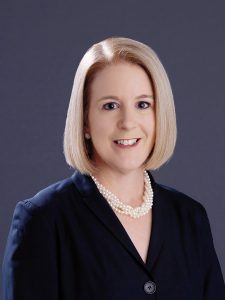 Did you know that there are men serving on a committee at Washington Women’s Foundation? It’s true – on our Impact Assessment Committee.
Did you know that there are men serving on a committee at Washington Women’s Foundation? It’s true – on our Impact Assessment Committee.
Washington Women’s Foundation has been awarding grants since 1996 and has been formally reviewing the impact of those grants since 2003. That year, the Foundation formed its first Impact Assessment Committee “to create an understanding of the impact of our grants both by creating lasting partnerships with grantees and by collecting and maintaining historical records on grant impacts.”
Now, our Impact Assessment Committee works between October and June of each year, conducting post-grant site visits and meeting monthly to share with each other what they have learned. This past year, more than 40 members served on the Committee along with 12 Executive Directors, including 4 men. We invite Executive Directors to join the Committee as they bring expert insights and unique perspectives that further our learning as grant makers.
Through our impact assessment process, we focus on three things:
- Developing deeper relationships with our grantees
- Learning about their successes and challenges
- Identifying themes and trends that cross all five of our funding areas.
By communicating what the Impact Assessment Committee learns each year to the leadership of the Pooled Fund Grant Committee, we hope that we are becoming smarter and more strategic in our collective decision-making.
Each year we try to improve the way that we communicate these learnings to our broader membership. Our hope is that an upgrade to our website may help facilitate that in the future. In the meantime, here is feedback from the 2015-2016 Impact Assessment Committee:
- We applaud the increased diversity that we’re seeing among grantees – geography and populations served, specifically.
- Continue to look for grassroots investment opportunities and new organizations that have never sought funding from us before but also don’t forget about larger, established institutions with innovative ideas or projects that only private philanthropy can fund.
- While WWF is beginning to fund more organizations outside King County, we would love to increase the number of grants going outside King County and metro Seattle, especially those areas with fewer resources and opportunities for funding.
- Continue exploring the value of taking risks with potential grantees and define the degree of acceptable risk.
- We often expect “to bat 1.000” with all of our grants but is this realistic? Is it keeping us from expanding our view of what success means? We saw several grantees this year succeed in unexpected ways, and we encourage members to remember that our uniquely flexible grants can allow grantees opportunities to “fail,” which often leads to important learnings.
- When a grantee goes through an unexpected seismic shift, don’t be afraid to look at what happened, what we might have missed during grant process, what we could have asked, so that we’re better informed in future.
- Succession planning for leadership is a big issue that crosses all parts of the not-for profit sector. Succession planning is more than just knowing who the next Executive Director is going to be. We need to know how our grantees are thinking about succession planning.
- Keep up a willingness to look a second time potential grantees. Programs and organization will have changed since they first applied for a grant, so it’s important to look at them with fresh eyes.
- WWF is funding more “springboards,” projects that can be replicated in other counties, which is an exciting trend. When looking at whether or not this is possible, though, note that resources and needs vary from county to county. It requires depth in organizational soundness to recreate successful programs in new locations.
- We commend the Pooled Fund Grant Committee for bringing forward prospective grantees whose efforts may not necessarily come to fruition during the grant period. Entrenched problems require long-term thinking and long-term efforts.
- WWF’s willingness to make grants for general operating funds makes us relatively unique. We can continue to encourage potential grantees to apply for them as these unrestricted funds can be transformational.
Through our groundbreaking model of women-powered, collective philanthropy, Washington Women’s Foundation has awarded $16 million in transformative grants that have enabled not-for-profit organizations to improve lives, protect the environment, advance health and education and increase access to the arts throughout Washington state.
All women are invited to join our strong and inclusive collective of informed women influencing community transformation. The challenges ahead of us are never as great as the power behind us. www.wawomensfdn.org